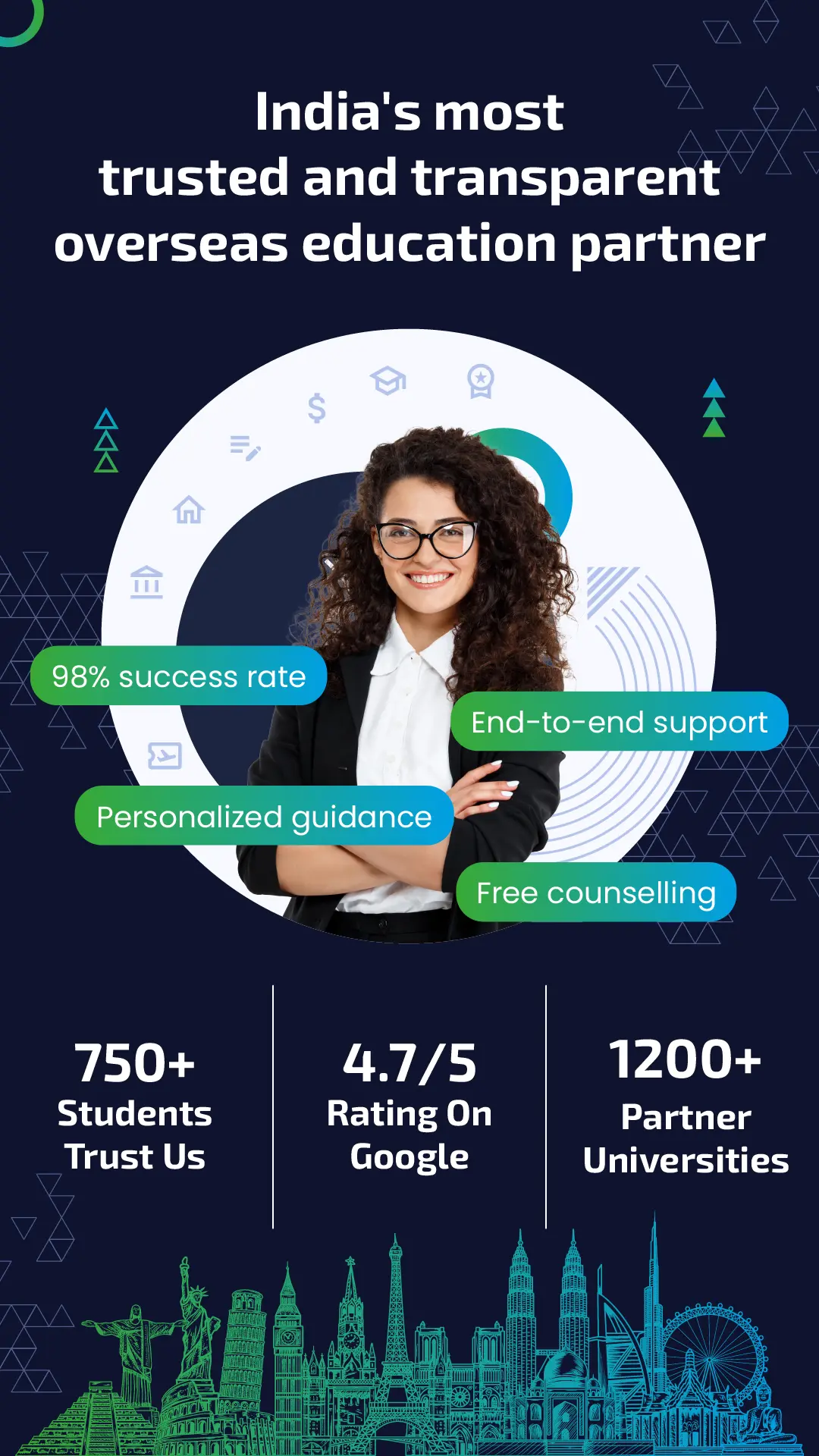France has long been a beacon for international students, renowned for its rich culture, esteemed academic institutions, and vibrant student life. A common question many students ask is: Can you study in France without knowing French? The answer is a clear yes! With more than 1,700 English-taught programs available in various fields, France is making it easier than ever for non-French-speaking students to pursue their dreams.
Why Choose to Study in France Without Knowing French?
Opting to study in France without knowing French offers numerous advantages:
- Accessibility: Many programs are available in English, especially at the master’s level.
- Quality Education: French universities are globally recognized for their academic excellence.
- Cultural Exposure: Living in France lets you experience European culture while studying in English, ideal for students who want global exposure.
- Career Opportunities: France’s strategic European location offers ample job prospects post-graduation.
Top English-Taught Universities in France
Several top-rated French institutions offer programs entirely in English:
École Polytechnique
École Polytechnique, renowned for its engineering and science programs, offers several master’s courses in English with a strong focus on innovation and research. This is particularly valuable for students aiming to work in cutting-edge industries, as the programs provide them with both technical expertise and a mindset geared towards solving complex global challenges, all while being immersed in France’s renowned research ecosystem.
Rennes School of Business
Rennes School of Business is globally recognized for its strong international outlook, with over 90% of its faculty and students coming from outside France. It offers a wide range of master’s programs in English in fields like International Business, Finance, and Marketing. For Indian students, this means access to a globally diverse learning environment and opportunities to build cross-cultural management skills, key assets in today’s global job market.
ISC Paris
ISC Paris delivers English-taught programs that combine academic rigor with real-world business relevance. Its focus on entrepreneurship, innovation, and leadership makes it ideal for Indian students looking to develop strong business acumen while gaining hands-on experience through internships and business projects. The school also offers excellent corporate partnerships and networking opportunities in the heart of Paris.
SKEMA Business School
SKEMA stands out with its global campuses and highly ranked English-taught programs in management, business analytics, and finance. With a strong emphasis on digital transformation and sustainability, SKEMA is a perfect fit for Indian students aiming to lead in evolving business landscapes. Its global mobility options let students study across France, Brazil, China, and the U.S., offering a uniquely international education.
College De Paris
College De Paris offers accessible, career-focused programs in English across multiple disciplines, including digital marketing, luxury brand management, and business strategy. It’s especially appealing to Indian students seeking a balance of affordability, practical training, and international exposure. The institution also supports employability with strong links to local industries and SMEs.
Paris School of Business (PSB)
In one of the world’s top financial capitals, PSB offers fully English-taught bachelor’s and master’s programs in international management, data analytics, and finance. With its experiential teaching approach and strong ties to the business community, PSB equips Indian students with the tools to thrive in European and global markets.
KEDGE Business School
KEDGE is known for its research-driven curriculum and industry-oriented programs in supply chain, marketing, and sustainable development, all available in English. Places in Paris, Bordeaux, and Marseille allow Indian students to experience different French regions while benefiting from world-class education and solid career support.
NEOMA Business School
NEOMA’s English-taught programs are well-suited for students interested in innovation, leadership, and entrepreneurship. Its strong academic partnerships and focus on employability give Indian students an edge, especially in sectors like consulting, digital business, and international trade. The school also boasts a vibrant alum network and international mobility options.
INSEEC Business School
INSEEC offers a variety of English-taught master’s programs with a strong focus on practical skills, internships, and industry immersion. Indian students benefit from its location in key cities like Paris, Lyon, and Bordeaux. Its digital marketing, luxury brand management, and finance programs are particularly aligned with global industry trends.
Montpellier Business School
Montpellier Business School emphasizes inclusivity, sustainability, and innovation in its English-taught programs. With a diverse student body and strong corporate connections, it’s an excellent choice for Indian students seeking to gain responsible business leadership experience, especially in emerging industries like tech, green business, and social entrepreneurship.
Excelia Business School (Excelia Group)
Excelia offers English-taught master’s and MBA programs in tourism, digital communication, and international business. Located in La Rochelle, a coastal city with an intense startup scene, Excelia is ideal for Indian students who want a more relaxed, affordable student life without compromising on quality education and industry relevance.
Popular English-Taught Courses
Students can pursue a wide range of disciplines in English, including:
- Business and Management: Programs focusing on international business, finance, and marketing.
- Engineering and Technology: Computer science, electrical engineering, and information technology courses.
- Sciences: Degrees in biology, chemistry, physics, and environmental science.
- Social Sciences: Studies in international relations, political science, and sociology.
- Arts and Humanities: Art history, philosophy, and cultural studies programs.
Admission Requirements
To study in France without knowing French, international students typically need to:
- Academic Qualifications: Hold relevant academic credentials for the desired program.
- English Proficiency: Provide proof of English language proficiency through IELTS, TOEFL, or equivalent tests.
- Application Materials: Submit a statement of purpose, letters of recommendation, and academic transcripts.
- Visa Requirements: Obtain a student visa, which may require proof of enrollment and financial means.
Living in France Without Speaking French
Studying in France without knowing French is definitely possible, but knowing a bit of the language can make your daily life much more enjoyable. Many universities offer French language courses to help international students settle in, making it easier to connect with locals, navigate the city, and fully experience French culture. Additionally, learning basic French can enhance social interactions and ease day-to-day activities.
Scholarships and Financial Aid
France offers various scholarships to international students, such as:
- Eiffel Excellence Scholarship: Aimed at attracting top international talent to French master’s and Ph.D. programs.
- Erasmus+ Program: Provides funding for students to study in European countries, including France.
- Campus France Scholarships: A platform listing numerous scholarships available to international students.
These financial aids make it more accessible to study in France without knowing French.
Post-Graduation Opportunities
Graduates from English-taught programs in France have various career opportunities:
- Employment in France: International graduates can apply for a temporary residence permit to seek employment.
- Further Studies: Opportunities to pursue advanced degrees or research positions.
- Global Careers: A French degree is recognized worldwide, opening doors to international job markets.
Essential Tips for Indian Students Studying in France
Studying in France offers a world-class education, but adapting to a new environment can be exciting and challenging. To make the most of your time in France, it’s important to be academically and culturally prepared. Below are some essential tips to help you navigate life as an Indian student in France.
1. Cultural Tips and Etiquette:
French culture is rich in tradition and has a unique way of doing things. Understanding and respecting local customs can help you blend in and avoid misunderstandings.
- Greetings: In France, people greet each other with a handshake or a kiss on both cheeks, depending on the region. When addressing professors or elders, it’s essential to use “Monsieur” (Mr.) or “Madame” (Mrs.) unless invited to use first names.
- Punctuality: French people value punctuality, especially in professional and academic settings. Being on time is a sign of respect and professionalism.
- Dining Etiquette: The French take their meals seriously. When dining with others, please keep your hands visible (on the table), but avoid resting your elbows on them. Also, never start eating before the host does.
- Fashion and Appearance: The French are known for their style, so dressing neatly and presentably is often expected. Fashion is an essential part of French life, especially in larger cities like Paris.
2. Student Support Services:
Many universities in France offer extensive student support services to help international students adjust to life in France. These services are crucial for your overall well-being and success.
- International Student Offices: Most universities have dedicated offices catering to international students. They can assist you with paperwork, visa issues, and finding accommodation. They often also organize welcome events to help you meet other students.
- Academic Support: Many institutions offer tutoring or extra help sessions if you need academic assistance. These resources are invaluable if you’re struggling with coursework or need advice on managing your studies.
- Counselling and Mental Health: Moving to a new country can be overwhelming. Universities in France understand this and offer counseling services to help students cope with stress, homesickness, or any personal issues that might arise.
3. How to Choose the Right Program:
Selecting the right academic program in France is crucial for your long-term success. With a wide array of courses available in English, it’s essential to assess your academic interests, career goals, and personal preferences before making a decision.
- Research Your Options: France offers numerous programs, especially in engineering, business, IT, and humanities. Use university websites, education fairs, and student forums to understand what each program offers and how it aligns with your goals.
- Accreditation and Recognition: Ensure that recognized bodies accredit the program you’re interested in. This guarantees that your degree will be recognized globally and that you will receive a high-quality education.
- Career Prospects: Look for programs that offer opportunities for internships, job placements, and have strong industry connections. Many French universities partner with leading companies, providing students access to European job markets.
- Personal Fit: Consider the university’s location, campus culture, and support services. The best program for you should align with your academic and personal goals.
4. Networking and Extracurricular Activities:
One key aspect of studying in France is the opportunity to expand your network. Engaging in extracurricular activities is a great way to make friends, learn new skills, and gain experiences outside the classroom.
- Clubs and Societies: Most universities in France offer a variety of student-run clubs and societies. These can range from cultural clubs to academic institutions or even volunteer groups. Joining a club is a great way to meet people with similar interests and broaden your horizons.
- Internships and Job Fairs: Many French universities organize job fairs and networking events with potential employers. These are perfect for learning about job opportunities and internships and networking with professionals in your field of interest.
- Socializing and International Events: Look for social events organized by student associations, including international student gatherings. These are great for expanding your social circle and learning more about different cultures.
- Sports and Physical Activities: French universities often have excellent sports facilities and encourage students to engage in physical activities. These can be great ways to stay fit and meet new people.
5. Language Learning Resources:
While many degree programs in France are now taught in English, learning some French will significantly improve your social and academic experience. The good news is that plenty of resources are available for international students to improve their French language skills.
- French Language Courses: Most universities offer language courses to international students, helping them improve their speaking, reading, and writing skills. Some programs may even include language lessons as part of your curriculum.
- Language Exchange Programs: Universities often facilitate language exchange programs, where students can practice French with native speakers and, in exchange, help others practice English or other languages.
- Online Platforms: Many online resources for learning French exist, including apps like Duolingo, Babbel, or Memrise. These can be useful for practicing French in your spare time.
- Cultural Immersion: One of the most effective ways to learn French is through immersion. Try to speak French whenever you can, watch French movies, read French newspapers, and participate in local cultural activities. The more you engage with the language, the faster you’ll pick it up.
Conclusion
Studying in France without knowing French is not only possible but also a rewarding experience. France stands out as a top destination for international students with many English-taught programs, world-class universities, and a rich cultural landscape. Embracing this opportunity can lead to personal growth, academic excellence, and a global career.



